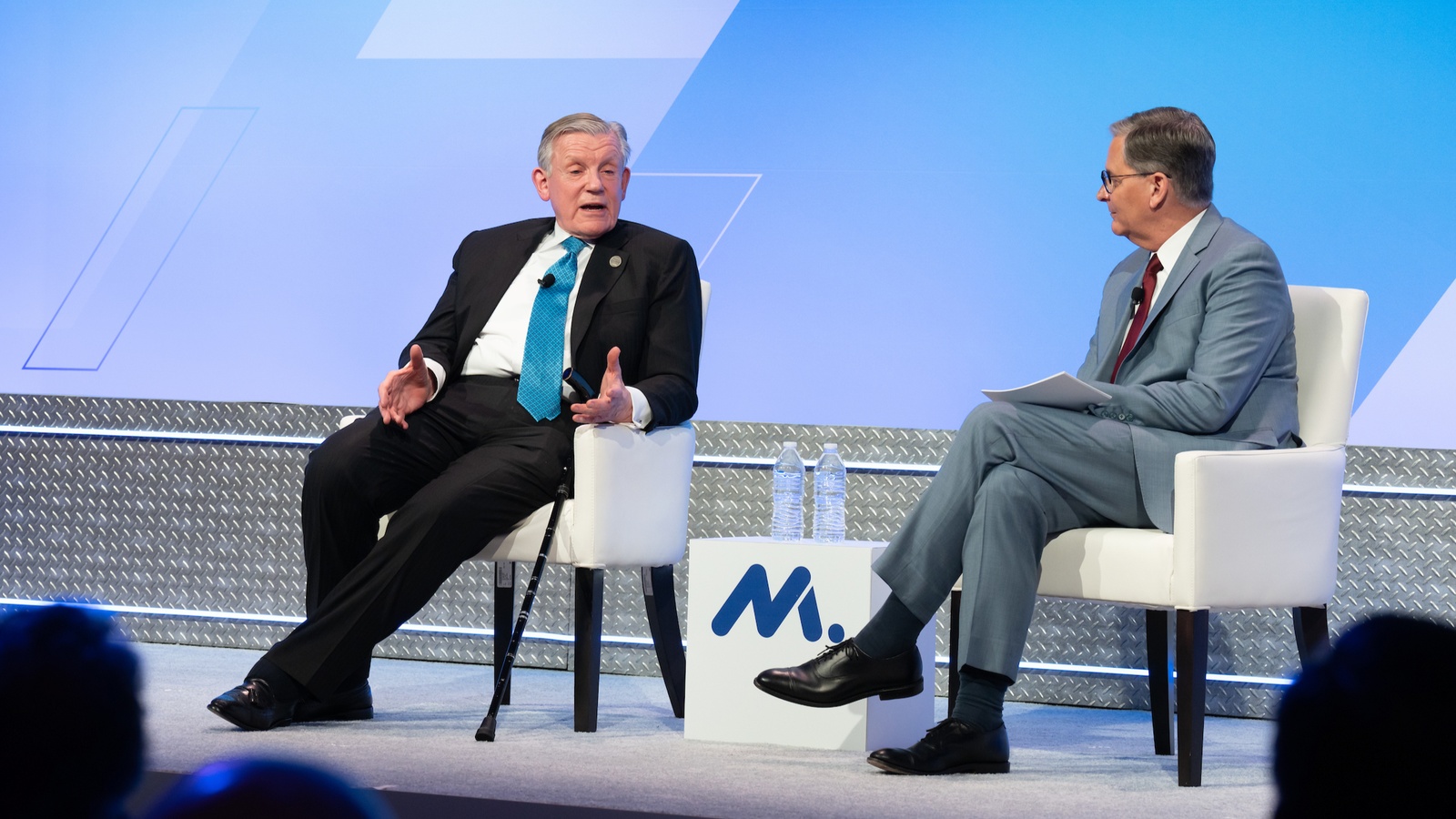From JFK to Mother Teresa: The Career of Snap-on CEO Nick Pinchuk

In an interview with Nick Pinchuk, you will start with JFK, meander through Ralph Waldo Emerson and the New Testament, meet Mother Teresa along the way and find out only at the end that he helped send the Viking probe to Mars. And let’s not forget another achievement: he delivered his own child in the backseat of the family car.
The Snap-on chairman and CEO, an executive committee member and stalwart supporter of the NAM, sat down for a very wide-ranging interview with NAM President and CEO Jay Timmons at the NAM’s recent board meeting, at which he received the Manufacturing Icon Award. Here are some of the highlights.
Starting with Kennedy: When asked how he got into manufacturing, Pinchuk cites Kennedy’s 1961 speech promising that the U.S. would put a man on the moon by the end of the decade. Pinchuk was one of the “millions of young people” who pursued STEM careers because Kennedy inspired them, he said.
- He then found himself shipped to Vietnam after a stint in the Reserve Officers’ Training Corps. His experience in the army later helped launch him into management at Ford, when the company was looking for someone who could “run something 24 hours a day”—just as he had in Vietnam.
- He “parlayed” that experience into a business degree, then rose fast in two other organizations—United Technologies and Carrier. His experience in Vietnam helped a second time, leading Carrier to choose him to run its Asia operations.
- Finally, Snap-on came calling, looking for someone with international experience. “On a day in which the board of directors likely had too much wine,” Pinchuk joked, “they decided to give me the CEO job.”
The life lesson? “I probably am sitting here because I went to Vietnam. It could never have been planned.” Pinchuk said. “I’ve made friends in many countries. I’ve opened factories. I’ve met two canonized saints of the Catholic Church and actually a lot of presidents. They weren’t part of a life plan. They were opportunities that arose in which I was prepared and privileged to participate.”
- And here’s another thing he didn’t exactly plan: while driving his wife to the hospital at 4:30 a.m. after she went into labor, he found himself forced to “pull into an empty parking lot and run around, open the door and play catch.”
Purpose: Timmons and Pinchuk discussed the necessity of upskilling the workforce, and in the course of explaining why a sense of purpose is so important to workers, Pinchuk mentioned the time he met Mother Teresa.
- “I talked to her, and she said a bunch of things to me that changed my life. She said, here’s an example that might be useful to you. I was walking down a street with some of my sisters and a beggar got up from the curb.”
- “This was someone I would usually consider to be the subject or focus of my mission to help. The beggar walked over and gave me a coin of little value. And she said, you know why? It’s because he could find respect in the fact that he helped Mother Teresa. Purpose. Purpose is everything.”
On strategy: When asked about his successful 20 years at Snap-on, Pinchuk said, “I believe that an organization’s strategy best emanates from what actually works for it. And so if you understand what works for you, what’s inherent in the DNA and the capabilities of the people, then you say to yourself, ‘Well, that should be my strategy.’”
- “We have people who send me pictures of small Snap-on toolboxes with ashes of their loved ones in them because the loved ones believed that among the most important things in their lives were Snap-on tools,” he continued. “We cannot break that faith.”
- “Therefore, we have to know who we are. And, that is, we are those who give working men and women the means, through the use of Snap-on tools, to declare they’re doing something special and to signify the pride they have in their profession. Making Snap-on worthy of that belief is the core of our strategy.”
The last word: Timmons concluded the conversation by thanking Pinchuk for his support of the NAM and the Manufacturing Institute, saying, “We’re so grateful for your unwavering service to the NAM and your industry. You’re a true model for business leaders in America.”